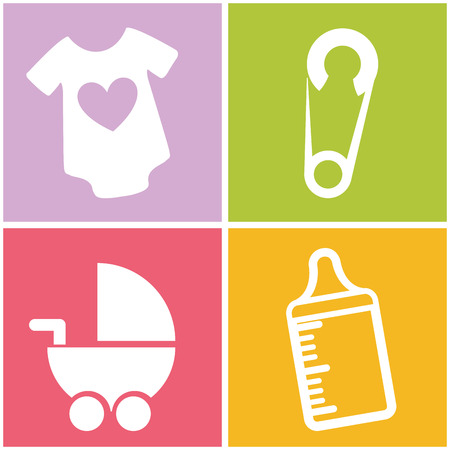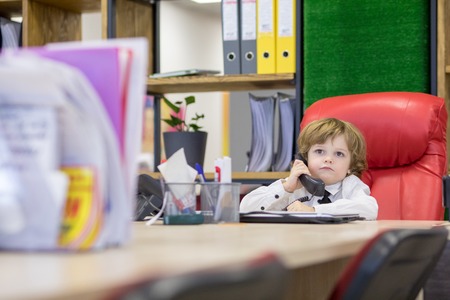1. Understanding the Reception Year in the UK
The Reception year marks a significant milestone for children and families in the United Kingdom, serving as the first formal step into primary education. Typically, children start Reception in the academic year they turn five, joining a vibrant community of learners who are embarking on their educational journey. This stage is structured around the Early Years Foundation Stage (EYFS) curriculum, which is designed to support holistic development and lay a strong foundation for future learning.
Key Areas of Learning in Reception
| Area of Learning | Description |
|---|---|
| Personal, Social and Emotional Development | Encourages children to develop confidence, independence, and positive relationships with others. |
| Communication and Language | Focuses on listening skills, speaking confidently, and understanding language. |
| Physical Development | Promotes fine and gross motor skills through indoor and outdoor activities. |
| Literacy | Introduces phonics, reading, writing, and storytelling. |
| Mathematics | Covers basic concepts like numbers, counting, shapes, and simple problem-solving. |
| Understanding the World | Encourages curiosity about people, places, technology, and the environment. |
| Expressive Arts and Design | Fosters creativity through art, music, movement, and imaginative play. |
A Typical Day in a UK Reception Class
The structure of a typical Reception day is thoughtfully balanced between adult-led activities and child-initiated play. Children may begin their morning with group registration and circle time before moving into focused sessions on phonics or number work. Throughout the day, there are opportunities for free flow between indoor and outdoor environments, supporting hands-on exploration and social development. Snack times are incorporated to encourage healthy habits and independence. The afternoon often includes creative projects or storytime before children prepare to go home.
The Early Years Foundation Stage (EYFS) Curriculum
The EYFS framework not only outlines learning goals but also emphasises the importance of play-based learning. Practitioners observe each child’s progress closely to tailor support according to individual needs, ensuring that every child feels valued and included within the classroom community. By understanding what Reception involves—including its curriculum priorities and daily routines—parents can better prepare their child for this exciting transition into school life across the UK.
2. Building Early Social Skills and Independence
One of the most important aspects of preparing your child for Reception class in the UK is nurturing their social skills and independence. Starting school marks a significant transition, so supporting your child as they learn to interact with peers and manage everyday tasks will help them settle in more smoothly.
Guidance for Social Development
Children thrive when they feel confident interacting with others. Encourage your child to participate in group activities, share toys, and take turns during playdates or at nursery. Practising these behaviours at home and in community settings—such as local parks or toddler groups—will help your child understand social expectations within a British classroom environment.
Essential Social Skills to Develop
| Skill | How to Support |
|---|---|
| Sharing and turn-taking | Use board games or group storytelling sessions where everyone waits their turn. |
| Expressing emotions appropriately | Label feelings during daily events (“I see you’re feeling sad because…”) and discuss ways to cope. |
| Making friends | Arrange regular playdates, encourage joining local clubs, and model positive introductions (“Hello, my name is…”). |
| Listening and following instructions | Practice simple two-step instructions during household routines (“Please put on your shoes, then wash your hands”). |
Building Independence in Practical Tasks
UK schools encourage children to manage personal needs independently. This not only fosters self-confidence but also enables teachers to focus on learning activities. Key practical skills include:
- Dressing independently: Teach your child how to put on their coat using the “hood flip” method, fasten zips, and manage buttons commonly found on school uniforms.
- Toileting: Ensure your child can use the toilet independently, wipe properly, flush the toilet, and wash their hands thoroughly afterwards.
- Lunchtime skills: Practise opening lunchboxes, peeling fruit, and using cutlery so they are comfortable eating without adult assistance.
Quick Reference: Essential Independence Checklist
| Task | Tips for Practice at Home |
|---|---|
| Putting on/taking off coat and shoes | Create a daily routine where your child dresses themselves before going out. |
| Using the toilet unaided | Praise progress and gently remind about hygiene after every visit. |
| Packing/unpacking their own bag | Let your child choose what goes into their nursery or day-out bag each morning. |
| Sitting still for short periods (e.g., story time) | Read together daily and gradually increase the duration as attention improves. |
By focusing on these social skills and fostering independence well before Reception starts, you are helping your child build a strong foundation for success both academically and emotionally as they begin their primary school journey in the UK.

3. Fostering Early Literacy and Numeracy
Building a strong foundation in literacy and numeracy is essential for your child’s successful transition into Reception class. In the UK, early years education emphasises learning through play, exploration, and meaningful interactions. Here are practical tips, aligned with British teaching methods, to nurture a love of reading and numbers at home:
Tips for Encouraging Early Literacy
- Share Picture Books Daily: Reading together every day, even for just 10 minutes, helps children develop language skills and imagination. Choose books with vibrant illustrations and simple texts.
- Use Story Sacks: Create a small bag with a book and related objects (soft toys, puppets, or themed items) to make storytelling interactive.
- Singing Nursery Rhymes: Traditional British nursery rhymes such as “Twinkle Twinkle Little Star” or “Baa Baa Black Sheep” introduce rhythm and new vocabulary in a fun way.
- Name Labels Around the House: Label everyday items like ‘door’, ‘chair’, or ‘cup’ to help children associate words with objects, supporting early word recognition.
Recommended British Picture Books
| Book Title | Author | Why It’s Great |
|---|---|---|
| The Gruffalo | Julia Donaldson | Engaging rhyme and repetition help build phonics skills. |
| We’re Going on a Bear Hunt | Michael Rosen | Sensory language and actions encourage participation. |
| Each Peach Pear Plum | Janet & Allan Ahlberg | Simple text and seek-and-find illustrations boost observation. |
Tips for Introducing Numeracy Through Play
- Counting Everyday Objects: Count steps when climbing stairs or pieces of fruit at snack time. This contextualises numbers in daily life.
- Singing Number Songs: Songs like “Five Little Ducks” or “Ten Green Bottles” reinforce counting backwards and forwards.
- Puzzles and Sorting Games: Use shape sorters or matching games to introduce basic maths concepts such as sorting by size, colour, or quantity.
- Baking Together: Measuring ingredients is an excellent hands-on way to talk about numbers, volume, and sequence.
Everyday Numeracy Activities Table
| Activity | Description |
|---|---|
| Laying the Table | Your child can count out plates, forks, and cups needed for each family member. |
| Tidy Up Time | Sorting toys by type or colour encourages categorisation skills. |
| Naming Shapes Outdoors | Spot circles (wheels), squares (windows), etc., during walks in the park or neighbourhood. |
By weaving these activities into your routine, you’ll help foster confidence and curiosity in both reading and mathematics—key areas of focus in UK Reception classrooms.
4. Familiarising with School Routines and Environment
One of the most important steps in preparing your child for Reception Class in the UK is helping them become comfortable with the new school environment and daily routines. This process not only eases anxiety but also fosters independence and confidence as they start their educational journey. Below are practical ways to introduce your child to the British school setting.
Visiting the School Playground
Before the term begins, arrange visits to the school playground during open days or after school hours. Let your child explore the play equipment, observe other children, and become familiar with the outdoor spaces. This will help your child associate positive feelings with their new environment and reduce first-day nerves.
Understanding Uniform Expectations
Most UK primary schools require children to wear a uniform. Involving your child in choosing and trying on their uniform can make them feel excited and proud to be part of their new school community. Teach your child how to dress independently, including fastening buttons, zipping coats, and changing shoes for PE lessons.
| Uniform Item | Skill to Practice |
|---|---|
| Polo Shirt/Blouse | Buttoning up independently |
| Trousers/Skirt | Pulling on/off with ease |
| Jumper/Cardigan | Putting on/removing over head/arms |
| Shoes (Velcro preferred) | Fastening securely by themselves |
| PE Kit | Changing clothes quickly and neatly |
Practising Drop-off and Pick-up Routines
The daily drop-off and pick-up routine can be a big change for both parents and children. Practise saying goodbye positively, reassuring your child that you will return at home time. If possible, walk or drive the route together before term starts so it becomes familiar. Discuss who will collect your child each day and where you will meet them, using clear and consistent language.
Tips for a Smooth Transition:
- Create a simple morning routine chart to follow before leaving home.
- Use visual cues or a favourite comfort item for reassurance during goodbyes.
- Encourage your child to greet staff members and say goodbye confidently.
- Celebrate small achievements after each successful drop-off or pick-up.
Summary Table: Key Activities for Familiarisation
| Activity | Purpose |
|---|---|
| School Playground Visit | Builds familiarity with environment & peers |
| Uniform Practice Sessions | Encourages independence in dressing skills |
| Drop-off & Pick-up Rehearsals | Eases separation anxiety & builds routine confidence |
This early exposure to the schools routines and physical environment is instrumental in ensuring your child feels secure and prepared when Reception starts, laying a strong foundation for a happy transition into primary education.
5. Supporting Emotional Readiness and Wellbeing
Preparing your child emotionally for Reception is just as important as developing their academic skills. Many children experience a mix of excitement and anxiety when starting school, so it’s vital to provide reassurance, open communication, and consistent routines. Here are practical strategies to help your child feel confident and supported as they embark on this new chapter.
Talking About Feelings
Encourage your child to express how they feel about starting Reception. Use simple language and relatable examples, such as “Some children feel excited, others might feel a bit nervous. Both are absolutely normal.” Let them know it’s okay to have mixed emotions and that you’re there to listen and help.
Common Worries Children May Have
| Worry | How to Address It |
|---|---|
| Will I make friends? | Talk about making new friends through sharing and being kind. Arrange playdates with future classmates if possible. |
| Who will help me if I’m upset? | Introduce the idea of teachers and teaching assistants as friendly adults who are always there to help. |
| What if I miss home? | Reassure them that many children feel this way at first and it gets easier. Suggest bringing a small comforting item in their bag (if allowed by the school). |
| What happens if I need the toilet? | Practise asking adults for help at home, and explain that staff are used to helping children with these needs. |
Establishing Calming Routines
A predictable daily routine can provide a sense of security and help your child manage transitions more smoothly. Start implementing school-like routines a few weeks before term begins. This may include:
- Consistent bedtime and wake-up times: Ensuring your child is well-rested makes mornings less stressful.
- Practice getting ready: Encourage independence by letting your child dress themselves, pack their own bag, and use the toilet unaided.
- Tidy up time: Introduce short periods where your child helps tidy up toys or books—this mirrors classroom expectations.
- Cue calm-down activities: Before bed or after busy days, try calming activities like reading together, listening to gentle music, or doing some deep breathing exercises.
Sample Calm-Down Routine Before Bedtime
| Time | Activity |
|---|---|
| 6:30pm | Pajamas on & brush teeth together |
| 6:45pm | Select a storybook and read aloud in bed |
| 7:00pm | Cuddle time or talk about something nice from the day |
| 7:15pm | Lights off & soft lullaby music (optional) |
The Power of Positive Reinforcement
Praise your child for expressing their feelings, trying new things, or managing worries. A sticker chart or verbal encouragement (“I’m proud of you for telling me how you feel!”) can boost their self-esteem and readiness for Reception. Remember, emotional preparation is a gradual process—patience and consistency will support your child’s wellbeing as they settle into school life.
Engaging with the School Community
As your child prepares to start Reception, actively engaging with the school community can make a significant difference in their transition and overall experience. UK primary schools typically offer various opportunities for parents to participate in induction events, meet teachers, and connect with other families. These interactions help establish a supportive network, easing both your child’s and your own anxieties about starting school.
Why Engage with the School Community?
- Familiarisation: Attending induction sessions allows your child to become comfortable with the new environment, meet future classmates, and explore classroom resources.
- Relationship Building: Meeting teachers and staff helps you understand their teaching approach, expectations, and routines.
- Support Network: Connecting with other parents provides opportunities to share experiences, tips, and organise playdates outside school hours.
Typical Induction Events in UK Primary Schools
| Event | Description | Benefits |
|---|---|---|
| Stay and Play Sessions | Short visits where children and parents explore the classroom together before term starts | Reduces first-day nerves; familiarises children with staff and setting |
| Parent Information Evenings | Sessions led by teachers covering curriculum, routines, and key policies | Keeps parents informed; clarifies expectations |
| Coffee Mornings / PTA Meetings | Informal gatherings for parents to meet each other and get involved in school life | Builds friendships; encourages parent involvement |
Tips for Making the Most of Community Engagement
- Introduce yourself to other families during events – you may find neighbours or potential carpool partners.
- Don’t hesitate to ask questions during information evenings; teachers are accustomed to supporting new Reception parents.
- If available, join the Parent-Teacher Association (PTA) or volunteer for school activities. It’s a great way to stay connected and informed.
A Supportive Start for Every Family
Your active participation in these events not only reassures your child but also strengthens your bond with the school community. By embracing these opportunities, you lay the foundation for a positive primary school journey—one where your family feels welcomed, supported, and engaged every step of the way.


